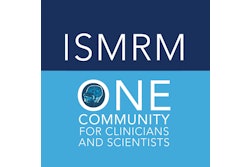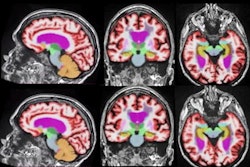Dear AuntMinnie Member,
This week's International Society for Magnetic Resonance in Medicine (ISMRM) meeting wrapped up in London -- the first time an ISMRM annual congress has been held in person since the 2019 show in Montreal.
Fortunately, Philip Ward, editor in chief of our sister site AuntMinnieEurope.com, was on hand in London leading an editorial team that covered the proceedings for our RADCast @ ISMRM 2022.
One of the most prominent themes at ISMRM 2022 was MRI safety, an especially relevant issue given that MRI accidents continue to occur around the world. In fact, our coverage of an ISMRM talk by noted MRI safety expert Michael Steckner, PhD, was our top article for the week.
Other important stories from ISMRM 2022 included the following:
- Researchers presented a talk on an MRI fingerprinting technique that could make a one-minute clinical brain scan a reality.
- MRI radiomics could help predict metastases from prostate cancer.
- Deep learning can transform the clinical use of MRI, such as by helping reduce use of gadolinium contrast.
- First responders who experienced post-traumatic stress disorder from the September 11 terrorist attacks may have impaired cognitive ability, MRI scans show.
You'll find these stories -- as well as video interviews with key opinion leaders in MRI -- at ismrm.auntminnie.com.
Coping with contrast shortage
Outside the realm of MRI, the medical imaging world has been coming to grips with a shortage of one of the most commonly used iodinated contrast agents for CT and x-ray exams, Omnipaque from GE Healthcare.
Shipments of Omnipaque were disrupted due to the recent COVID-19 lockdown in Shanghai, China, where a good portion of the world's supply of the agent is manufactured. And while GE says that production has resumed and shipments are getting back up to speed, imaging facilities continue to have to deal with supply shortages.
What's the best way to cope? Find out in an article in our CT Community.



















